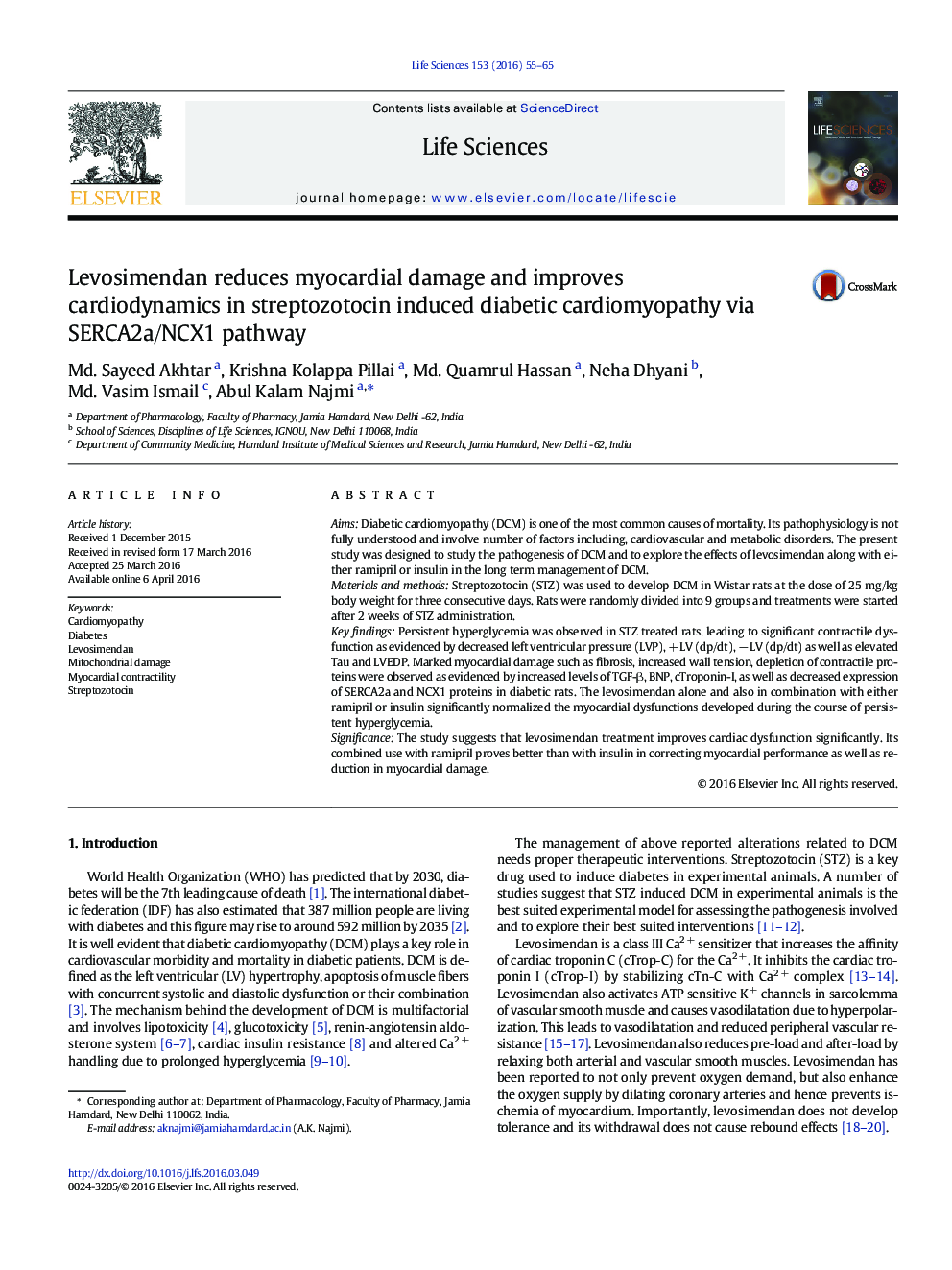| کد مقاله | کد نشریه | سال انتشار | مقاله انگلیسی | نسخه تمام متن |
|---|---|---|---|---|
| 2550556 | 1560575 | 2016 | 11 صفحه PDF | دانلود رایگان |

AimsDiabetic cardiomyopathy (DCM) is one of the most common causes of mortality. Its pathophysiology is not fully understood and involve number of factors including, cardiovascular and metabolic disorders. The present study was designed to study the pathogenesis of DCM and to explore the effects of levosimendan along with either ramipril or insulin in the long term management of DCM.Materials and methodsStreptozotocin (STZ) was used to develop DCM in Wistar rats at the dose of 25 mg/kg body weight for three consecutive days. Rats were randomly divided into 9 groups and treatments were started after 2 weeks of STZ administration.Key findingsPersistent hyperglycemia was observed in STZ treated rats, leading to significant contractile dysfunction as evidenced by decreased left ventricular pressure (LVP), + LV (dp/dt), − LV (dp/dt) as well as elevated Tau and LVEDP. Marked myocardial damage such as fibrosis, increased wall tension, depletion of contractile proteins were observed as evidenced by increased levels of TGF-β, BNP, cTroponin-I, as well as decreased expression of SERCA2a and NCX1 proteins in diabetic rats. The levosimendan alone and also in combination with either ramipril or insulin significantly normalized the myocardial dysfunctions developed during the course of persistent hyperglycemia.SignificanceThe study suggests that levosimendan treatment improves cardiac dysfunction significantly. Its combined use with ramipril proves better than with insulin in correcting myocardial performance as well as reduction in myocardial damage.
Journal: Life Sciences - Volume 153, 15 May 2016, Pages 55–65